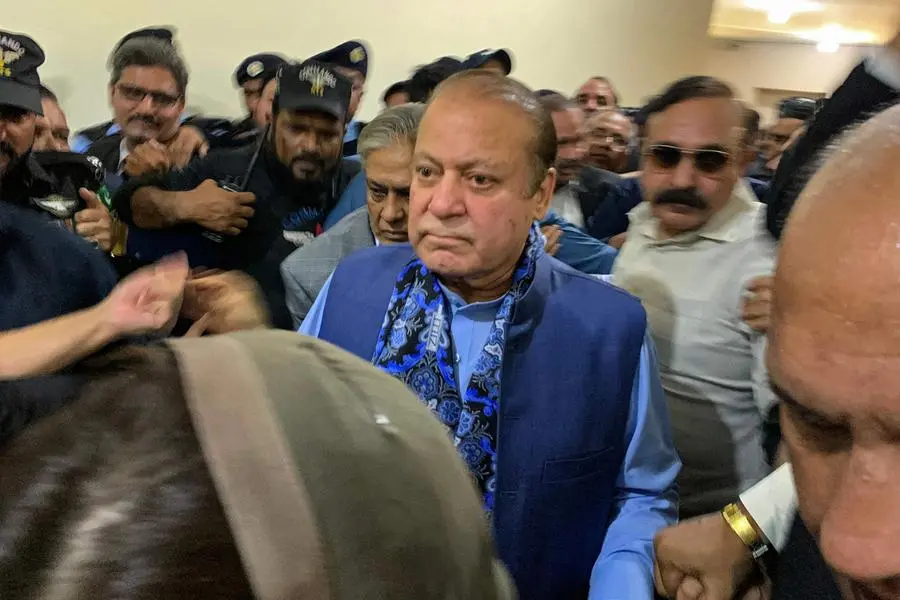PHOTO
Three-time Pakistani prime minister and graft convict Nawaz Sharif appeared in court Tuesday for the first time since returning from self-imposed exile, bidding to clear his name and contest elections due early next year.
Sharif left Pakistan in 2019 part way through a jail sentence to seek medical care in the United Kingdom, ignoring multiple court orders to return under the government of Imran Khan.
But with Khan in custody and out of favour with the military, Sharif has launched yet another political comeback ahead of elections slated for January 2024.
Supporters showered Sharif with petals on Tuesday as he arrived at a graft court in the capital Islamabad where his bail was confirmed.
He then headed to the Islamabad High Court where he is appealing two separate convictions.
"A date will be fixed by the court for when proceedings should start," Sharif's lawyer Naseer Ahmed Bhutta told AFP outside the court.
"He will attend all proceedings that he is required to."
Last week Sharif was granted protective bail in all cases, paving the way for his homecoming without the threat of arrest.
Analysts say his return was likely smoothed by a deal with the powerful military establishment.
"Nawaz is here to be a part of the electoral process and most likely to be the next prime minister of the country," political analyst Tauseef Ahmed Khan told AFP.
"It's quite evident that he has reached a rapprochement with the establishment; he will sail through the court proceedings."
- 'Man of the soil' -
Sharif's return has been touted for months by his party, which hopes his political clout and "man of the soil" swagger will revive its flagging popularity.
On Saturday he greeted thousands of his supporters at a welcome home rally in his powerbase of Lahore, telling the crowds how much he had missed them.
Sharif has been prime minister three times but has never completed a full term.
His political fortunes rise and fall on his relationship with Pakistan's military establishment -- the country's true kingmakers who have ruled directly for more than half of its history and continue to enjoy immense power.
His primary opponent Imran Khan, who remains wildly popular in Pakistan particularly among the young population, was on Monday indicted over allegations of leaking state documents.
The charge could see him kept in custody in the lead up to elections.
He was already disqualified from contesting polls after being convicted of graft in August, although his three-year prison sentence was later suspended.
Khan, who has waged a campaign of defiance against the military which ultimately led to a major crackdown against his Pakistan Tehreek-e-Insaf party, has said the cases against him are politically motivated.





















